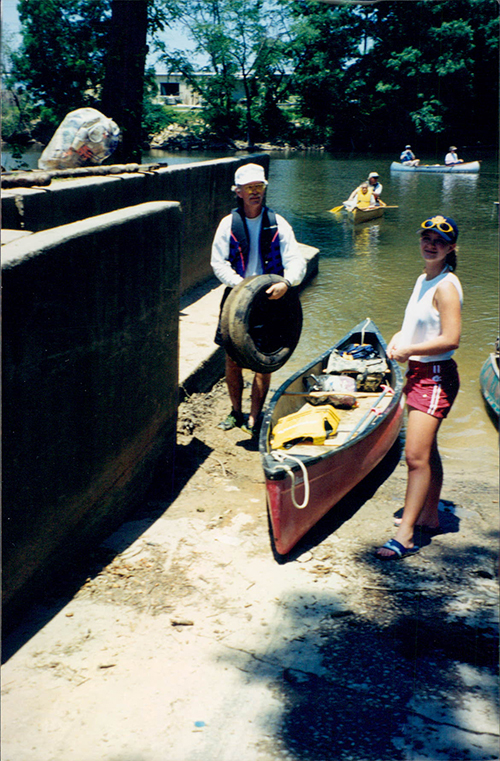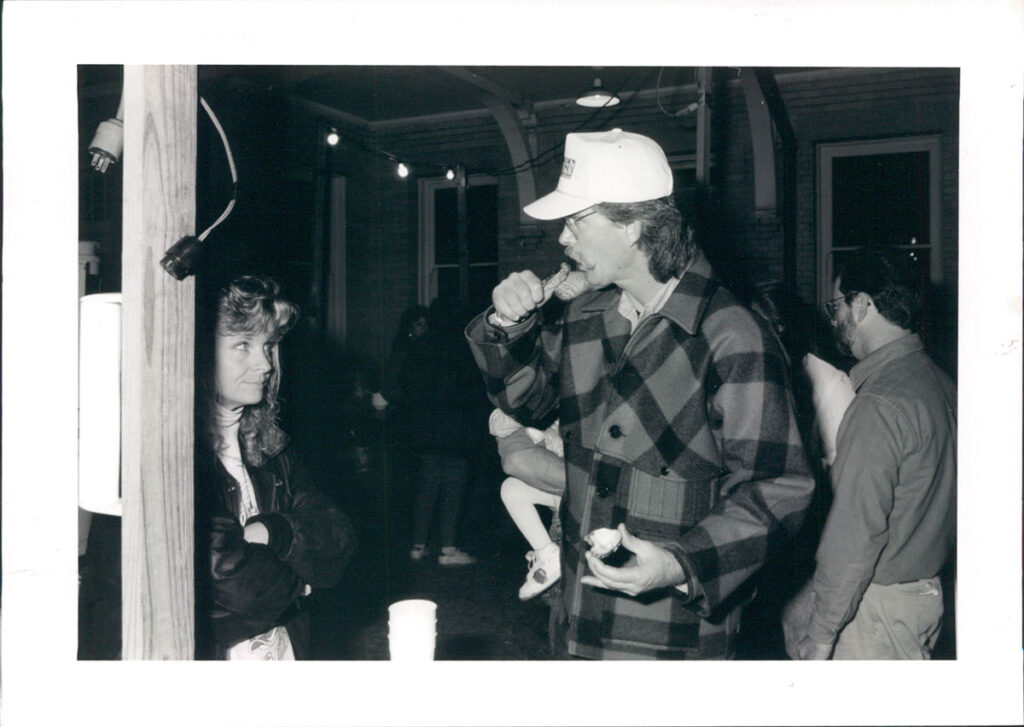
JOE HESTER, ROCKY MOUNT
“Most of our pJoe Hester doesn’t recall how he first became aware of the Pamlico-Tar River Foundation, now Sound Rivers. But the Rocky Mount attorney has been environmentalist for as long as he can remember.roblems for the river have always been, and now certainly are, from the land.”
“I was around for the first Earth Day, walking around the campus of UNC-Chapel Hill. I was around when they built the first nuclear facility in the state; I was there when they ditched and drained all the land in Dare County for farming,” Hester said.
Three decades later, he was at the helm of the Sound Rivers’ board when the decision was made to hire PTRF’s first riverkeeper, Heather Deck, now Sound Rivers’ executive director, though his involvement started long before — in the 1990s, when the river had reached a critical place.
“There was so much stuff going on that we were involved in,” Hester said. “PTRF was very involved; they coordinated, encouraged, mobilized state agencies to get Rocky Mount to upgrade its wastewater treatment plant — they had dumped 2 ½ billion gallons of raw sewage into the Tar (River), and it was terrible.”
Indeed, there were many things going on: PTRF was behind Swift and Sandy creeks being designated Outstanding Resource Waters, moving to protect “unique and special waters having exceptional water quality” and restricting types of development around them. Its members rallied around the “No OLF” movement, in which the U.S. Navy proposed building an outlying landing field in Beaufort and Washington counties that promised ecological devastation. PTRF had its hand in facilitating buy-outs of hog farms in the 100-year-flood plain after the historic flooding of Hurricane Floyd in 1999 and preventing a low-level radioactive waste dump from breaking ground in Edgecombe County, not to mention funding and grants to assist with the Albemarle-Pamlico Estuarine Study, Partnership for the Sounds, the North Carolina Estuarium — the only museum of its type in the world — the constructed wetlands on the Washington waterfront, and much more.
“The two people I think of when I think of PTRF are Dick Leach (a PTRF founder) and David McNaught (early executive director). We are where we are today, in my opinion, is because of them,” Hester said.
For his role in Rocky Mount city council ultimately nixing the construction by IBP of a hog-processing plant outside of Tarboro, Hester was given Sound Rivers’ Great Blue Heron award.
“We were involved; we went to hearings, but here’s why it was not approved: Sam Carlisle was my law partner, and he grew up in Tarboro. I found out that for IBP to exist, and to slaughter hogs 24 hours a day, seven days a week, it would have consumed 90- to 95-percent of all water designated for the growth of Rocky Mount. Sam knew everyone and went to talk to them, and that sank the IBP plan,” Hester said.
Hester said the role of PTRF then, and now of Sound Rivers, is to keep eyes on the ground, on the water — and on the data.
“One of the things I was also proud of was we came with facts. When we talked to a legislator, they knew we knew what we were talking about. We had the facts; we had the science. I was always proud that we were science-based,” he said. “It’s an organization that keeps its eyes out to protect the river. You have to be observant and cognizant of what’s going on in the watershed, and when you see what could be a deleterious effect — whether that’s an IBP or low-level radioactive waste dump — then you need to do the appropriate thing: provide the science to the decision-makers; mitigate; coordinate; when you can influence the rules, you try to do that. We’re for advocacy, we’re for education — yes — but we’re really for the watershed.”
Joe Hester and wife Betsy have been active Sound Rivers volunteers for more than 30 years, resulting in both the Hesters’ part-time residence in Washington, virtually next door to the site of Sound Rivers’ ever-popular Oyster Roast event, and Betsy now serving on the Sound Rivers board of directors.

